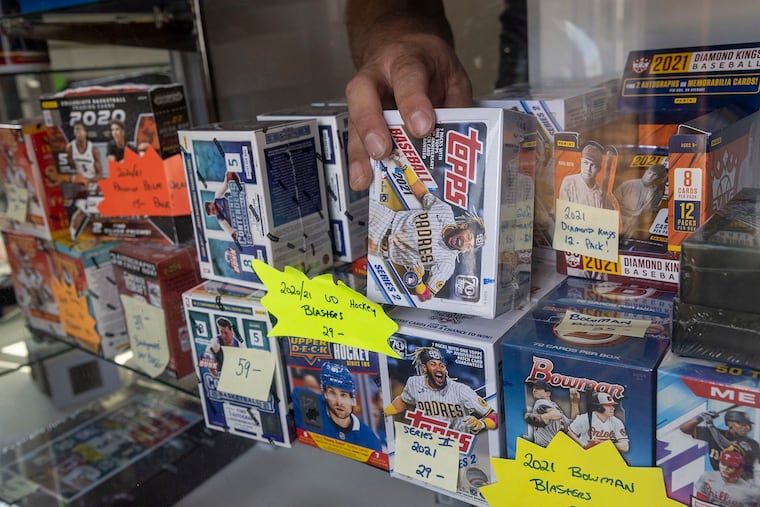MLB will end 70-year baseball card deal with Topps for exclusive deal with Michael Rubin’s Fanatics
Topps printed its first baseball cards in 1951 and has had an exclusive deal with MLB since 2010. That deal expires after 2025, and MLB’s deal with Fanatics, a source confirmed, begins in 2026.

Topps, the industry-leader for baseball cards for 70 years, will soon no longer have the rights to print Major League Baseball cards. The league and the players’ union made a deal with Fanatics Inc. this week for the company to exclusively produce MLB cards.
Topps printed its first baseball cards in 1951 and has had an exclusive deal with MLB since 2010. That deal expires after 2025, and MLB’s deal with Fanatics, a source confirmed, begins in 2026.
Get bonus offers from the best PA sports betting sites
“Topps expects to be able to produce substantially all its current licensed baseball products through 2025, pursuant to its existing agreements,” the company said in a statement Friday.
Fanatics is owned by Michael Rubin, the billionaire entrepreneur from Montgomery County who holds a minority stake of the 76ers. The company declined to comment.
Fanatics is the dominant e-commerce brand for sports apparel and is the official online retailer of five major American professional sports leagues. Earlier this week, Fanatics joined Jay-Z in bidding for a sports-betting license in New York state as the company continues to expand beyond selling apparel and memorabilia.
» READ MORE: It's time to change which stats appear on Topps baseball cards
Topps helped make baseball cards iconic as it put stats on the back of its cards in 1952 and produced rookie cards for everyone from Mickey Mantle to Mike Trout.
The company, vice president of product development Clay Luraschi said earlier this year, has a responsibility to teach the game of baseball to young fans. Soon, that responsibility will fall to Fanatics.
The trading card industry boomed during the pandemic as collectors rediscovered the hobby or dug even deeper into it while the world was shut down.
Cards started moving like stocks as values for rookie cards and rare vintage cards spiked on resale markets such as eBay. Packs and boxes became so hard to find that collectors were able to flip them for double or triple the retail price.
“The current marketplace since COVID has been freaky. It’s just been completely overwhelming,” said Steve MacKenzie, who owns Horsham’s Knuckleball Sports Cards. “My sales since last July when I reopened my store have probably tripled since before COVID.
“I’ve been here 11 years. Nine of them, I didn’t make any money or I lost money. But this year is going to be an exception. Last year, I made money. It’s going in the right direction. The market is very strong right now and I think a lot of people are home and you finally have time to say, ‘I think I have my old cards in my attic somewhere.’ You dig them out, and you’re into it again.”
» READ MORE: He thought the pandemic would crush his small business. Instead, his sports card store boomed.
Losing baseball cards is a big loss for Topps, which announced Friday it would remain a private company after it had been set to go public later this year. Topps is valued to be worth $1.3 billion. The only American sports leagues Topps still produces cards for are MLB and Major League Soccer. Its other products include WWE, Star Wars, Garbage Pail Kids, and European soccer.
In recent years, the trading-card market has been defined by exclusive deals and Topps made baseball cards its top priority. Upper Deck has the rights to NHL cards and Panini has an exclusive contract with the NFL. Panini has a deal with the MLB Players Association to produce cards that are absent team logos, but that contract will also go to Fanatics and become an exclusive deal.
All three of those companies - Panini, Topps, and Upper Deck - have produced cards for a combined 173 years. Panini owns Donruss, Topps owns Bowman, and Upper Deck owns Fleer. Fanatics is disrupting a market that has seen the same companies produce the same products for generations.